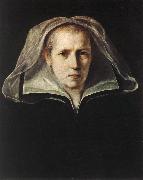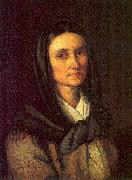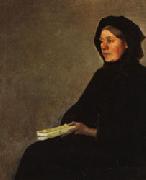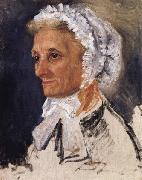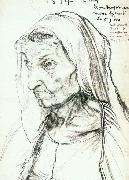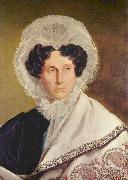Wholesale Oil Painting No Minimum |
|||||||||||
|
|
|||||||||||

|
|||||||||||
|
|
|
||||||||
RENI, GuidoItalian Baroque Era Painter, 1575-1642 Italian painter, draughtsman and etcher. He was one of the greatest and most influential of the 17th-century Italian painters, whose sophisticated and complex art dominated the Bolognese school. A classicizing artist, deeply influenced by Greco-Roman art and by Raphael but also by the mannered elegance of Parmigianino's paintings, he sought an ideal beauty; his work was especially celebrated for its compositional and figural grace. In his religious art he was concerned with the expression of intense emotion, often charged with pathos; according to his biographer Malvasia, he boasted that he 'could paint heads with their eyes uplifted a hundred different ways' to give form to a state of ecstasy or divine inspiration. |
||||||||
|
|
||||||||
Portrait of the Artist's Mother
Portrait of the Artist's Mother Painting ID:: 8874 |
1612
Oil on canvas, 64 x 55 cm
Pinacoteca Nazionale, Bologna 1612 Oil on canvas, 64 x 55 cm Pinacoteca Nazionale, Bologna |
|||||||
|
|
||||||||
Petrich, Soma OrlaiHungarian, 1822-1880 was a Hungarian painter. Petrich was born to a Serbian father and Hungarian mother. He originally wanted to become a writer. He was a pupil of Jakab Marastoni in 1846 and attended F. Waldmuller's school in Vienna from 1847. He often painted historical themese and in his lithographs he portrayed experiences during the war of independence. He studied at Kaulbach in Munich from 1850. He painted "The Corpse of Louis II" in 1851, |
||||||||
|
|
||||||||
|
|
Portrait of the Artist's Mother
Portrait of the Artist's Mother Painting ID:: 19856 |
Approx. 1853
Oil on canvas
Hungarian National Gallery, Budapest. Approx. 1853 Oil on canvas Hungarian National Gallery, Budapest. |
||||||
|
|
||||||||
|
|
||||||||
|
|
Portrait of the Artist's Mother
Portrait of the Artist's Mother Painting ID:: 11519 |
Paris 1848-Paris 1929
Portrait of the Artist's Mother(Salon de la Societe Nationale des Beaux-Arts,1895)
3' 3 1/4'' x 3' 3 1/4''(100 x 100 cm) Paris 1848-Paris 1929 Portrait of the Artist's Mother(Salon de la Societe Nationale des Beaux-Arts,1895) 3' 3 1/4'' x 3' 3 1/4''(100 x 100 cm) |
||||||
|
|
||||||||
Pierre RenoirFrench Impressionist Painter, 1841-1919 Pierre-Auguste Renoir (February 25, 1841?CDecember 3, 1919) was a French artist who was a leading painter in the development of the Impressionist style. As a celebrator of beauty, and especially feminine sensuality, it has been said that "Renoir is the final representative of a tradition which runs directly from Rubens to Watteau". Renoir's paintings are notable for their vibrant light and saturated color, most often focusing on people in intimate and candid compositions. The female nude was one of his primary subjects. In characteristic Impressionist style, Renoir suggested the details of a scene through freely brushed touches of color, so that his figures softly fuse with one another and their surroundings. His initial paintings show the influence of the colorism of Eugene Delacroix and the luminosity of Camille Corot. He also admired the realism of Gustave Courbet and Edouard Manet, and his early work resembles theirs in his use of black as a color. As well, Renoir admired Edgar Degas' sense of movement. Another painter Renoir greatly admired was the 18th century master François Boucher. A fine example of Renoir's early work, and evidence of the influence of Courbet's realism, is Diana, 1867. Ostensibly a mythological subject, the painting is a naturalistic studio work, the figure carefully observed, solidly modeled, and superimposed upon a contrived landscape. If the work is still a 'student' piece, already Renoir's heightened personal response to female sensuality is present. The model was Lise Tr??hot, then the artist's mistress and inspiration for a number of paintings. In the late 1860s, through the practice of painting light and water en plein air (in the open air), he and his friend Claude Monet discovered that the color of shadows is not brown or black, but the reflected color of the objects surrounding them. Several pairs of paintings exist in which Renoir and Monet, working side-by-side, depicted the same scenes (La Grenouill??re, 1869). One of the best known Impressionist works is Renoir's 1876 Dance at Le Moulin de la Galette (Le Bal au Moulin de la Galette). The painting depicts an open-air scene, crowded with people, at a popular dance garden on the Butte Montmartre, close to where he lived. On the Terrace, oil on canvas, 1881, Art Institute of ChicagoThe works of his early maturity were typically Impressionist snapshots of real life, full of sparkling colour and light. By the mid 1880s, however, he had broken with the movement to apply a more disciplined, formal technique to portraits and figure paintings, particularly of women, such as The Bathers, which was created during 1884-87. It was a trip to Italy in 1881, when he saw works by Raphael and other Renaissance masters, that convinced him that he was on the wrong path, and for the next several years he painted in a more severe style, in an attempt to return to classicism. This is sometimes called his "Ingres period", as he concentrated on his drawing and emphasized the outlines of figures. After 1890, however, he changed direction again, returning to the use of thinly brushed color which dissolved outlines as in his earlier work. From this period onward he concentrated especially on monumental nudes and domestic scenes, fine examples of which are Girls at the Piano, 1892, and Grandes Baigneuses, 1918-19. The latter painting is the most typical and successful of Renoir's late, abundantly fleshed nudes. A prolific artist, he made several thousand paintings. The warm sensuality of Renoir's style made his paintings some of the most well-known and frequently-reproduced works in the history of art.. |
||||||||
|
|
||||||||
|
|
Portrait of the Artist's Mother
Portrait of the Artist's Mother Painting ID:: 28567 |
1807-1896
1860
Oil on canvas 45 x 38 cm
Private collection (mk64) 1807-1896 1860 Oil on canvas 45 x 38 cm Private collection (mk64) |
||||||
|
|
||||||||
Albrecht Durerb.May 21, 1471, Imperial Free City of Nernberg [Germany] d.April 6, 1528, Nernberg Albrecht Durer (May 21, 1471 ?C April 6, 1528) was a German painter, printmaker and theorist from Nuremberg. His still-famous works include the Apocalypse woodcuts, Knight, Death, and the Devil (1513), Saint Jerome in his Study (1514) and Melencolia I (1514), which has been the subject of extensive analysis and interpretation. His watercolours mark him as one of the first European landscape artists, while his ambitious woodcuts revolutionized the potential of that medium. D??rer introduction of classical motifs into Northern art, through his knowledge of Italian artists and German humanists, have secured his reputation as one of the most important figures of the Northern Renaissance. This is reinforced by his theoretical treatise which involve principles of mathematics, perspective and ideal proportions. His prints established his reputation across Europe when he was still in his twenties, and he has been conventionally regarded as the greatest artist of the Renaissance in Northern Europe ever since. |
||||||||
|
|
||||||||
|
|
Portrait of the Artist's Mother
Portrait of the Artist's Mother Painting ID:: 63654 |
1514 Charcoal drawing on paper, 421 x 303 mm Staatliche Museen, Berlin Two months before his mother's death, D?rer recorded her features in this famous drawing. The extreme naturalism of the portrait is a reference to the hard life the depicted woman had endured, for she had suffered from various illnesses and had given birth to 18 children, only three of which survived. While in the Middle Ages ugliness was equated solely with evil or death, here its function is mainly as a private record.Artist:D?RER, Albrecht Title: Portrait of the Artist's Mother Painted in 1501-1550 , German - - graphics : portrait 1514 Charcoal drawing on paper, 421 x 303 mm Staatliche Museen, Berlin Two months before his mother's death, D?rer recorded her features in this famous drawing. The extreme naturalism of the portrait is a reference to the hard life the depicted woman had endured, for she had suffered from various illnesses and had given birth to 18 children, only three of which survived. While in the Middle Ages ugliness was equated solely with evil or death, here its function is mainly as a private record.Artist:D?RER, Albrecht Title: Portrait of the Artist's Mother Painted in 1501-1550 , German - - graphics : portrait |
||||||
|
|
||||||||
Alfred Rethel1816 Diepenbend/Aachen-1859 Dusseldorf, was a German history painter. Rethel was born in Aachen in 1816. He showed an interest in art in his early life, and at the age of thirteen he executed a drawing which procured his admission to the academy of D??sseldorf. Here he studied for several years, and produced, among other works, a figure of St Boniface, which attracted much attention. At the age of twenty, Rethel moved to Frankfurt, and was selected to decorate the walls of the imperial hall in the Rmer with figures of famous men. At the same period he produced a series of designs illustrative of Old Testament history. Four years later, Rethel was the successful competitor for the work of ornamenting the restored council house of his native city with frescoes depicting prominent events in the career of Charlemagne, but the execution of this work was delayed for some six years. Meanwhile Rethel occupied himself with the production of easel pictures and of drawings. In 1842, he began a striking series of designs dealing with the Crossing of the Alps by Hannibal, in which the weird power which animates his later art becomes first apparent. In 1844 Rethel visited Rome, executing, along with other subjects, an altar-piece for one of the churches of his native land. In 1846, he returned to Aachen, and commenced his Charlemagne frescoes. |
||||||||
|
|
||||||||
|
|
Portrait of the Artist's Mother
Portrait of the Artist's Mother Painting ID:: 82920 |
1836(1836)
Medium Oil on canvas
Dimensions 61 x 47 cm (24 x 18.5 in)
cyf 1836(1836) Medium Oil on canvas Dimensions 61 x 47 cm (24 x 18.5 in) cyf |
||||||
|
|
||||||||
|
Alfred Rethel 1816 Diepenbend/Aachen-1859 Dusseldorf, was a German history painter. Rethel was born in Aachen in 1816. He showed an interest in art in his early life, and at the age of thirteen he executed a drawing which procured his admission to the academy of D??sseldorf. Here he studied for several years, and produced, among other works, a figure of St Boniface, which attracted much attention. At the age of twenty, Rethel moved to Frankfurt, and was selected to decorate the walls of the imperial hall in the Rmer with figures of famous men. At the same period he produced a series of designs illustrative of Old Testament history. Four years later, Rethel was the successful competitor for the work of ornamenting the restored council house of his native city with frescoes depicting prominent events in the career of Charlemagne, but the execution of this work was delayed for some six years. Meanwhile Rethel occupied himself with the production of easel pictures and of drawings. In 1842, he began a striking series of designs dealing with the Crossing of the Alps by Hannibal, in which the weird power which animates his later art becomes first apparent. In 1844 Rethel visited Rome, executing, along with other subjects, an altar-piece for one of the churches of his native land. In 1846, he returned to Aachen, and commenced his Charlemagne frescoes. Portrait of the Artist's Mother 1836(1836) Medium Oil on canvas Dimensions 61 x 47 cm (24 x 18.5 in) cyf |
||||||||
|
|
||||||||
|
Prev Next
|
||||||||
|
|
||||||||
|
Related Paintings to Alfred Rethel :. |
||||||||
|
|
||||||||
|
CONTACT US |
